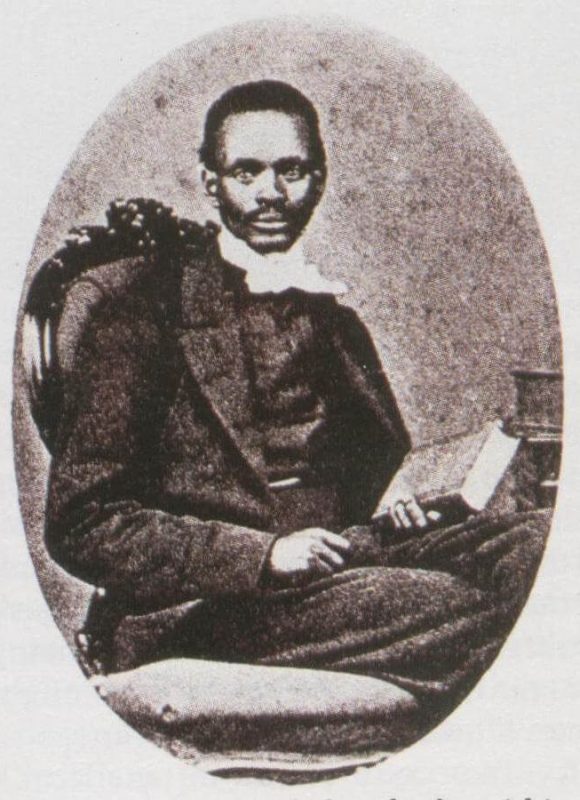PIONEER
Tiyo Soga

Political commentator | Religious leader | Journalist
Born: 1856 Died :1871
“Did we not form nations in the past? Did we not have our traditional leaders? What has happened to the wisdom of these leaders? Did we not have poets? Where is their poetry? Was there no witchcraft in the past? Did we not fight wars? Who were the heroes? Where are the people to teach us our history, our knowledge and our wisdom? Let even the spirit of the departed return to bless us with the great gift of our heritage, which we must preserve!”
Who is
Tiyo Soga?
Twentieth century African intellectual, political activist, missionary and writer, and the first black man to be ordained as a minister in the United Presbyterian Church of Scotland.
Professions
and Roles
Minister of religion, journalist, prominent translator, a devoutly religious Christian, intellectual, missionary, and musician.
Best Known For
Translating the bible into Xhosa, and for being one of the first black consciousness thinkers in South Africa, with a deep sense of pride in his African identity and culture.
Life highlights
- Soga attended Lovedale Seminary in the first half of the 19th century.
- He studied at the University of Glasgow, in Scotland, and was the first black ordained minister by the United Presbyterian Church of Scotland.
- Soga was a Pan-Africanist and black consciousness thinker despite being a devout Christian.
- Soga translated the Bible and many other English works of literature into isiXhosa, and composed 31 hymns, including ‘Lizalis’ idinga lakho’, which was sung at the founding of SANNC and which is still sung at political gatherings and funerals. He also wrote articles for and edited one of the earliest dual-language newspapers, the Lovedale school newspaper, Indaba.
- Soga did mission work around the Transkei region. When not engaged in missionary work, Soga interviewed elders on history, fables, legends, customs and the genealogy of chiefs, and wrote articles which he published in newspapers. Soga urged unity among all black people beyond the ethnic divide: “… to a weak party or race, union, above all things, is strength.”
- Soga was also responsible for revising the translation of the Bible into isiXhosa in the late 19th century.
- In 2006, Soga was posthumously awarded the Order of Ikhamanga in Gold for his “exceptional contribution to literature and the struggle for social change”.
IN THEIR OWN WORDS
“You will ever cherish the memory of your mother as that of an upright conscientious, thrifty, Christian Scotswoman. You will ever be thankful for your connection by this tie to the white race. If you wish to gain credit for yourselves – if you do not wish to feel the taunt of men, which you sometimes may be made to feel – take your place in the world as coloured, not as white men; as Kafirs not as Englishmen. You will be more thought of for this by all good and wise people … For your own sakes never appear ashamed that your father was an African, and that you inherited some African blood. It is every bit as good as that which flows in the veins of my fairer brethren.”
– Tiyo Soga, in a letter to his sons
IN THE WORDS OF OTHERS
“His native sense of integrity and his personal courage told him that he had to refuse to be corrupted, bought and intimidated, turned into an enemy of his people, and transformed into other than an African patriot, regardless of and despite his education by Scottish Presbyterian missionaries and by eminent professors at Scottish Universities … He insisted that whatever the destructive fury of imperialism and colonialism, and the attendant racism, which he experienced throughout his lifetime, the peoples of Africa would never be destroyed or subjugated, but would, in time, reclaim Africa as their historic and sovereign matrimony.”
– Thabo Mbeki, former President of South Africa, 2011
